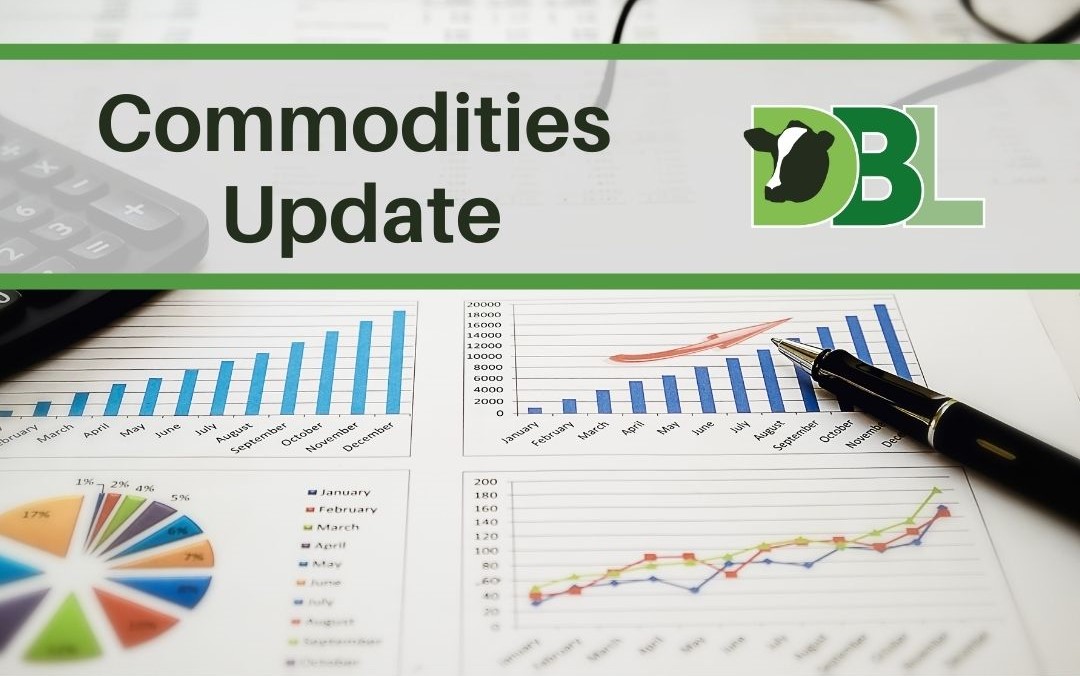Commodities Update (12/10)
The pound slumped against the dollar to $1.089 towards the end of September, however, has fluctuated over the past couple of weeks to $1.102. Against the euro the pound is following a similar pattern with lows of 1GBP = 1.089 EUR, with significant fluctuations over the past week - today 1GBP = 1.137 EUR.
 The Bank of England will make fresh emergency purchases of government bonds to stabilise financial markets, some pension funds are at risk of collapse in the wake of unfunded tax cuts. The Bank of England confirms its emergency bond-buying scheme will close this Friday adding more turmoil.
The Bank of England will make fresh emergency purchases of government bonds to stabilise financial markets, some pension funds are at risk of collapse in the wake of unfunded tax cuts. The Bank of England confirms its emergency bond-buying scheme will close this Friday adding more turmoil.
Gas - After a peak of 788pp/therm at the end of August, trading is currently around 300pp/therm, an increase of nearly 300% on last years prices. Winter 2022 contracts around 450pp/therm.
Although Britain is far less reliant on Russian gas than mainland Europe, it could still suffer knock-on effects from any shortfalls in supplies on the continent. Ofgem warned the UK is facing a "significant risk" of gas shortages this winter, which could impact electricity supplies.
After a couple of trading periods of gains, the early October GDT fell by -3.5% at the recent auction. (Anhydrous Milk Fat -1.7%, Whole Milk Powder -4.0%, Butter -7.0%).
Brent Crude has eased back slightly to $94.42/barrel after steady gains over the past couple of weeks, peaking at $98.20/barrel (07/10), this was exasperated by OPEC+’s decision to reduce output by 2 million barrels per day.
Milk Powder
The milk powder price has stabilised over the past couple of months, with no increases from our suppliers for October.
Fertiliser
Traders expect European gas prices to remain elevated for the short to medium term, producing high-cost nitrate and reduced output. This has triggered Urea imports from countries less affected by Russia’s control of gas. We are seeing supplies from non-traditional markets such as US Gulf, Nigeria & Indonesia where quality is untested to European expectations. Our supplier remains committed to the UK market for continuity & quality of supply; sourcing Egyptian Urea and Spanish 27N + 12SO3 & ASN 26N + 37SO3 compounds from Fertiberia.
On the 26th of September, the pound sunk to an all-time low as investors lost confidence in the UK’s economic policies following Friday’s mini budget. This has resulted in Nitrogen prices in the UK firming, due mainly to the exchange rates. Although global urea markets remain stable, the exchange rate puts a further £60 on a tonne of Granular Urea. With the recent increases in global wheat markets, our gross margin analysis confirms that the 2022/23 crop shows a strong margin at these current input/output levels. The same is true for the dairy sector with fertiliser still providing a good return on investment at current milk prices. Can you afford to sit and follow the unpredictability of what tomorrow may bring.
Feed
Markets remain volatile and uncertain, with the increased fighting in Russia/Ukraine. Last week markets yo-yoed around, ending lower after changing direction four times across the week. Cereal prices higher this morning as the war escalates in Ukraine, most believe the grain corridor will cease on the 20th November.
Soya and Rapemeal prices have been volatile over the past week due to the escalating war. Chicago soy complex higher Friday night on rising energy markets, increasing again this morning. Low water levels in the Mississippi limit US exports and increase import prices for some.
For up to date prices please contact Louise on 07943 684215 or e-mail louise@dblbuyinggroup.co.uk
Recent Articles
- Do You Know the Benefits of a Health and Heat Detection System?
- Have you Ordered Your Silage Inoculant?
- Growing More Grass With Less Nitrogen, Where Do I start?
- A Real Recognition of The Importance of Food Security or Simply A Reconciling of DEFRA Budgets?
- Silage Sheet Prices Available!
- Are Your Cows at Risk of Grass Staggers?
- Feed Late Afternoon and Calve in Daylight Hours!
- Q Fever
- Aerating Your Soil Without A Machine? – Gerard Finnan
- Why Are You Not doing a Soil Management Plan?

